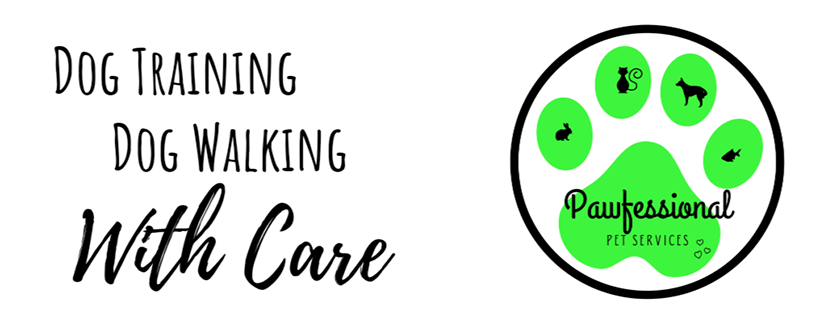Help! My older dog and new puppy aren’t getting along!
You’ve brought home a new puppy and things between the new addition and your elder resident dog aren’t going so hot and you want to know…
Should I let my older dog discipline my new puppy?
The simple answer is no. There are several reasons why we do not recommend you allow your puppy to annoy your older dog until they decide enough is enough and we will go through each in the article.
Stressful to both
Altercations are highly stressful scenarios to both parties and anyone in the household. Dogs do not like to be in arguments with other dogs because they take a lot of energy and they can increase behavioural issues over the long term. If a dog is getting into multiple altercations with other dogs (or even just one other dog), they will be more likely to have an overall negative mood state. This can also bleed over into other dog-dog relationships and lead to a less social dog who is more likely to escalate to growling and snapping around other known or unknown dogs.Can escalate over time
A dog who is left to discipline the puppy in their household is going to be more likely to escalate if continually left to be the disciplinarian figure. If you’ve ever looked at the ladder of communication, you’ll understand the escalation, but for those of you who haven’t, behaviourally sound dogs (and dogs whose warning signs have been listened to previously) will go for lower-rung behaviours, such as blinking, head turns, or lip licking. Whereas, dogs who are continually ignored will be more likely to growl, snap, or bite.Risk of Injury
Alongside the escalation is the risk of injury to either party. If the discipline escalates to snapping or biting, they can both be injured by teeth, claws, or even the physical strain of lunging. There are so many risks in a dog fight, so it’s best to ensure our new puppy isn’t allowed to continue annoying the elder dog to the point they feel the need to punish the puppy.Can deteriorate the relationship
We want our new puppy to fit into the family and get along with any existing dogs in the household. If the elder dog is left to discipline and teach the puppy the rules, we’re already starting off chasing our tail. The elder dog will be on edge when the puppy is around and may not be teaching the puppy skills and boundaries we want them to learn in the first place. While having two dogs can be great fun and lovely to watch them bond, we want to make sure to step in before the older dog feels stressed or annoyed and give our new puppy a better outlet for their energy. It’s also a good idea to help our new puppy learn some calmness around the other dog, as well as teach them independence so they aren’t overly reliant on the other dog.It's our job, not theirs
We are the ones who have decided to bring the puppy into our home. Our elder dog did not ask for this addition/disruption to their life. It is still our job to teach our new puppy the things we want them to learn, the same as if we didn’t have another dog in the house. It is great for them to have the other dog to play with, as appropriate, but both need to have their own spaces and things to do, both with and without you.Can make the puppy anxious around older dogs and learn bad social skills
If the adult dog that our new puppy lives with is left to punish the puppy, they may soon learn that adult dogs are not to be trusted or played with as sometimes they are scary. Each dog has their own level of tolerance, so where one dog might allow the puppy to pull their collar, another dog may snap as the puppy approaches. This is why it’s very important to be very picky about the dogs we allow our young puppies to play with. We need to ensure our puppies are socialised with well-balanced, tolerant adult dogs.Can frighten any kids in the household
Young children can often be afraid of incidents between dogs in their homes. We need to ensure any children in the home are kept safe by minimising conflict between the dogs. Any altercations between the resident dogs can cause the children to become afraid in their home, as well as of any strange dogs they meet outside the home.So how do you ensure your older dog and new puppy start to get along?
Management is key!
We need to make sure your new puppy is getting enough exercise, play, mental stimulation/enrichment, and sleep. Utilise separate rooms, ex pens, house lines, and crates as needed. Occupy them with chews from https://petparlour.ie/buy-dog-treats-dublin-ireland/ or enrichment toys from https://k9connectables.com/?ref=3429 (register for our newsletter to get your 10% off code: https://mailchi.mp/4ec77eab1b01/pawlsnewsletter).Training is essential
Book a qualified trainer to come help with initial set up and relationship building. Puppy classes can really help, as well, since you’ll be learning things like ‘go to bed’ and ‘recall’, which will help with managing interactions.Find a trainer at https://www.imdt.uk.com/find-a-qualified-imdt-trainer or https://www.findadogtrainer.com/. Feel free to contact us at Pawfessional Pet Services if you are struggling to find someone suitable.
And lastly, enjoy your new puppy, but don’t ignore your older dog! Make time for both dogs separately and together.
